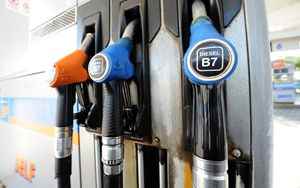(Finance) – There are now just over a week until February 5ththe day on which the import embargo of products oil processed from Moscow. Maximum alert on the price of diesel already splashed above today 1.9 euros per litre in Italian service stations. Indeed, Europe will suspend the importation of refined products for a total of approx one million barrels a day and half of these barrels will be of low sulfur diesel (fruit of the so-called “sweet” oil) with a high calorific value. European scenario Of course, this scenario is not a surprise for Europe.
In May, Rystad Energy, a Norwegian think tank specializing in strategic studies of the sector, raised the alarm on the deficiencies of a market European dependent on Russia. There request total of European diesel and gasoil is positioned between 6 and 7 million barrels per day, therefore demand could be impacted by 7-8% from one day to the next in the event of a tender. Europe ran for cover by buying refined products from India, the Middle East and China but at a higher cost.
In terms of addiction theItaly until June 2022 it imported only 5% of diesel from Russia. Since July, the fee has been completely zeroed. Indeed, the country can count on 13 plants which make the peninsula practically autonomous: against an internal consumption of refined products equal to 55 million tons, we refine almost 71, while the theoretical production capacity reaches 88 million tons. Furthermore, the dependence on Russian diesel, with the resolution of case Priolowas totally discontinued.
If anything, the problem could come from foreign purchase offers. For example from Germany which depends 30% on Russian diesel and with a reduced maximum refining capacity (83 million tons) could direct a large part of their purchase offers towards Rome, creating a shock to availability on the market indoor.
The problem therefore remains at the European level where various experts have highlighted the absence of one strategy on petrolium and on the enhancement of refining capacity. A limit that consumers across the continent risk paying who, after the surge in energy prices recorded in recent months, risk having to pay a new sting on diesel with all the correlated consequences on transport and the prices of goods traded in the EU.
